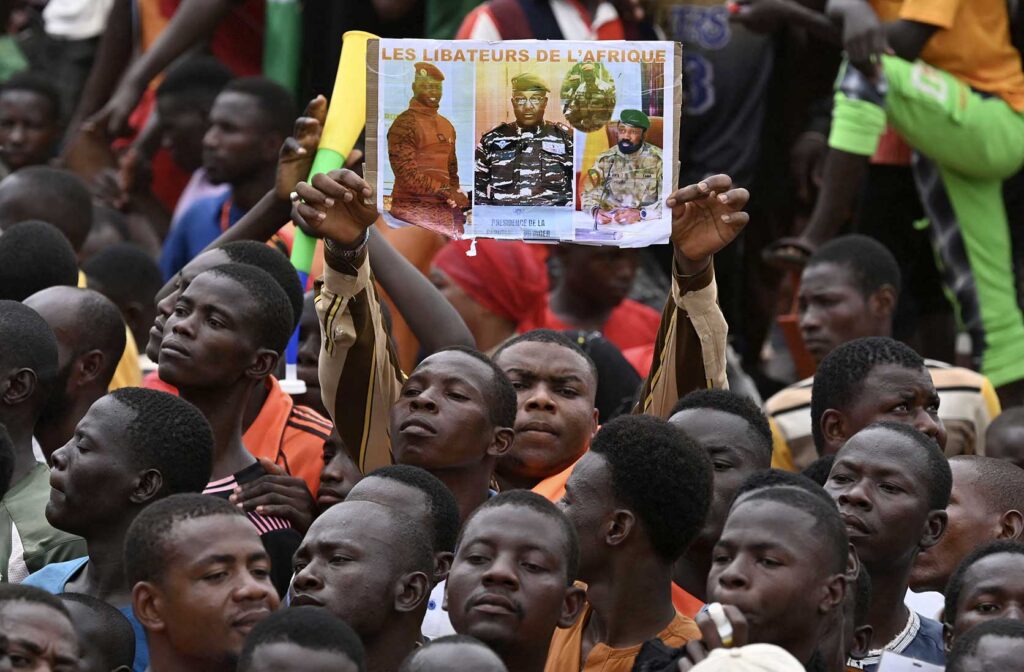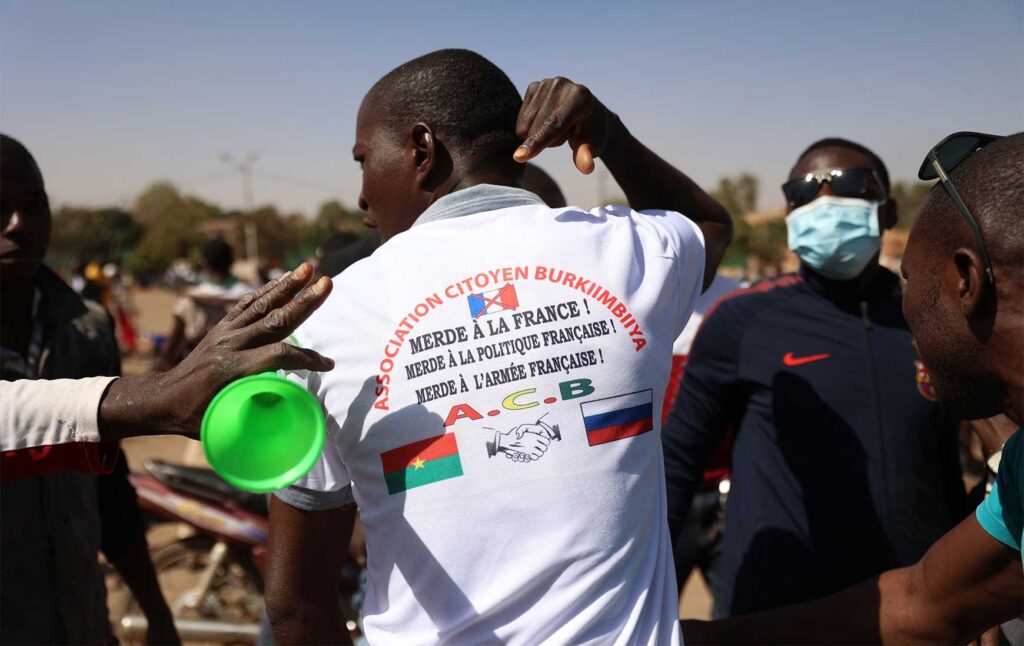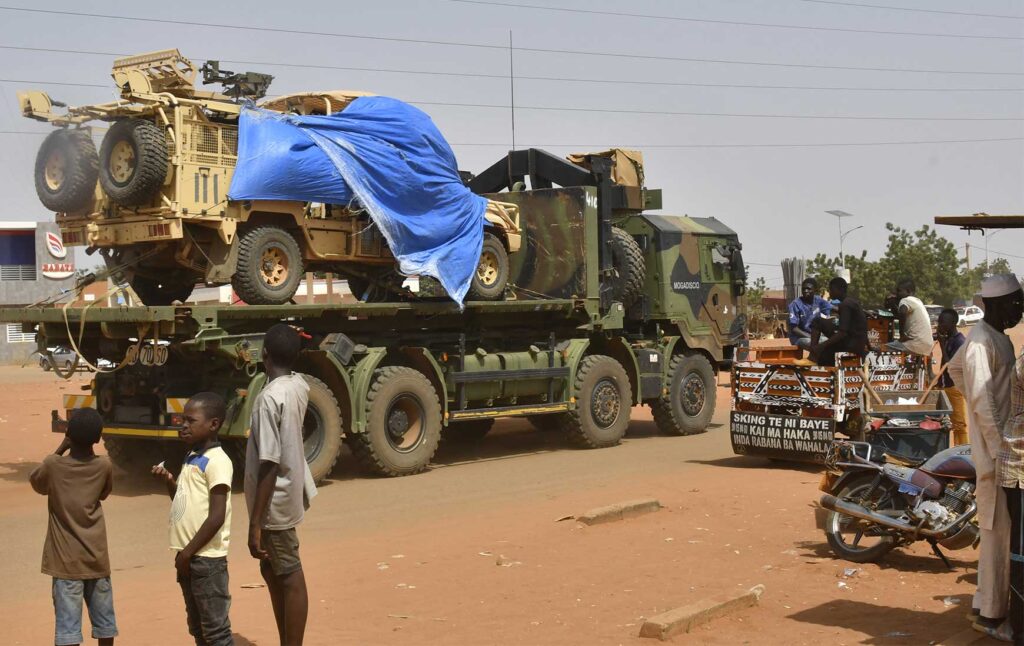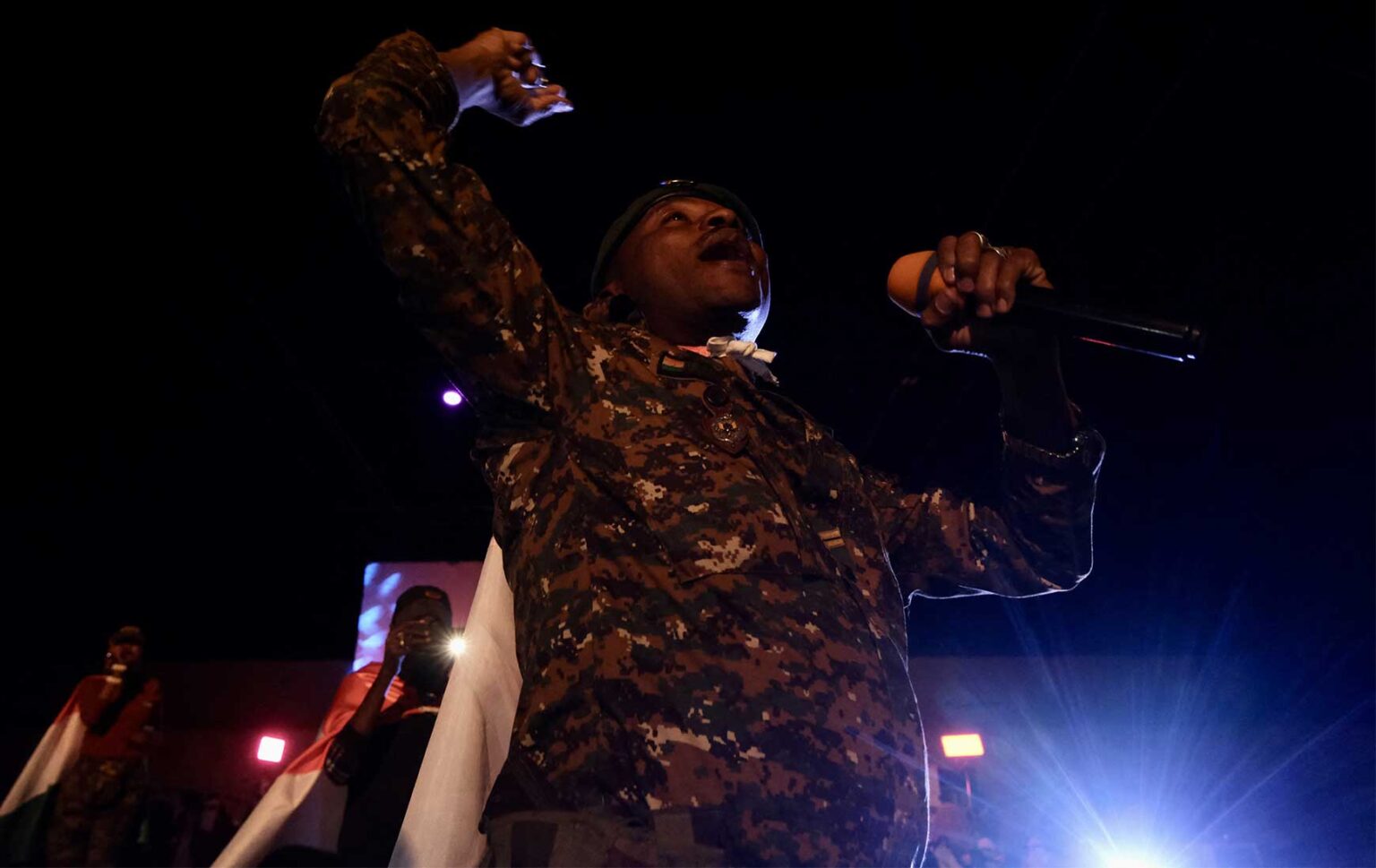A slew of military coups in West and Central Africa have occurred in what is colloquially known as francophone (French-speaking) Africa. The most recent, in Gabon in August, ended the presidency of Ali Bongo Ondimba and his family’s 55-year rule of the country, the latest in a series of military coups carried out across West and Central Africa since 2021 that have seen the removal of elected leaders in Mali, Chad, Guinea, Burkina Faso, and Niger.
As francophone suggests, these countries were previously French colonies, and the coups have given rise to questions about the suitability and sustainability of institutions inherited from their former colonial rulers. Are French-style institutions more susceptible to military takeovers and other forms of political instability? At independence from France, Africa’s newly formed states adopted a model of the unitary centralised state that drew upon General Charles de Gaulle’s 5th republic that was largely imposed on France after the chaos of World War II and which French people now widely accept.
In France, this constitution has proved a powerful tool for national, regional, and local economic development and transformation—and now, to meet existential crises like climate change and potentially catastrophic events such as COVID-19. The 5th Republic grew out of 200 years of political turmoil that culminated in World War II and is unique among constitutions in that it provides for a powerful executive president.

The president appoints a prime minister whose role is to manage a cabinet and the legislative programme through the national assembly. A professional national, regional, and local bureaucracy implements decisions made by the president and central government.
Local government and its organisational structure are key to delivery. The smallest villages are represented – organised into communes, which elect a mayor and councillors. All cities and towns, down to small villages, have a Mairie, or mayor’s office, at their centre. The Mairie is both the mayor’s office and a public service building and information centre for citizens and visitors alike. The mayor may or may not be attached to the ruling party, but the bureaucrats supporting the mayor ensure the presidential programme is implemented. The deputy mayor is traditionally a fonctionnaire or paid bureaucrat. The mayor’s political focus is first and foremost local.
Critically, the mayor has local tax-raising powers and autonomy over how the budget is spent. Great emphasis is placed on aménagement—local economic development—improving constituents’ lives as well as overseeing the core functions of local schools, roads, housing, waste management, planning permission, and tourism. France’s current focus is its part in the global energy transition: most rural towns and villages now have electrical vehicle infrastructure, adding to 300,000 public EV charge points, and the Mairie administers state subsidies for constituents to replace fossil fuel-based heating systems.
Politically ambitious mayors use their achievements as public administrators as a calling card for higher office, including the presidency. Emmanuel Macron’s first prime minister has returned to his former post as mayor of Le Havre, from where he is expected to prepare a future presidential bid. Mayors have been fundamental to France’s economic development in the post-war era; the system has delivered economic development and social mobility, equally and in a largely uniform manner nationwide.
However, this powerful instrument of development failed to have the same results in France’s former colonies. Just as de Gaulle imposed the 5th republic on France, it became the model for its newly independent former colonies with one difference: it was organised around a one-party system, already popular among newly independent anglophone countries. A highly centralised one-party state, organised around a powerful executive president, supported by an autonomous (inherited) state bureaucracy, is a hallmark of francophone African governance. At the time, it was justified as a means to streamline decision-making and fast-track much-needed development.
However, the key to the post-independence relationship between France and francophone African nations was France’s concerted efforts to control the region as a market for French companies and to give the former colonial power additional weight in international forums. France signed a comprehensive set of treaties covering defence and security, foreign policy and diplomatic consultation, economic, financial, commercial, and monetary matters, as well as technical assistance with these newly independent countries.

Underpinning this political framework was a common currency, the CFA franc, which has been in use in 14 countries in the region since 1946. The “franc of French colonies” still has a fixed exchange rate with the euro since it replaced the French franc in 2000. While this guarantees convertibility, maintains economic stability and controls inflation, French requirements that user nations hold reserves and an operational account in the French central bank have given rise to claims that these West and Central African countries are not independent.
Finally, bilateral defence and security agreements allowed France to intervene militarily at the request of the signatory country. In return, France was granted preferential access to strategic mineral resources such as natural gas, petroleum, and uranium and permitted to set up military bases as well. These conventions have fundamentally shaped the political, economic, and social trajectory of the signatory African nations.
While this mode of governance was largely accepted in the 1960s and 1980s, the top-down approach in francophone countries excluded significant proportions of the population from participation and decision-making. A commodities crash during the mid-1980s, the ensuing economic crisis, and growing popular protests for political pluralism led France, donors, and Bretton Woods institutions to abandon this top-down approach in favour of bottom-up and more broad-based participatory approaches based on greater democracy, which they believed would eradicate governance and development efficiencies.
Despite the turmoil of the 1990s and pressure from pro-democracy movements, the leaders of most francophone countries controlled the reform programme. So, even after democratic reforms, they have retained semi-presidential systems, where an appointed prime minister coordinates government action. Power has remained substantially vested with the president, who retained and, in some cases, extended wide-ranging powers of appointment. These have undermined democratic transitions and allowed the routine rigging of elections, the removal of constitutional term limits, corruption, the emergence of dominant ruling parties, presidents for life, and family-led dynasties.
One such example where democratic reforms have further concentrated power in the presidency is Cameroon. The 1996 constitutional amendment provided that the country was a unitary decentralised state, which was initially seen as a continuation of the political liberalisation efforts undertaken since 1990. However, while increasing the overall level of citizen participation by introducing municipal and regional councils as well as a senate, the apparent reform also reinforced the head of state’s already wide-ranging appointment prerogatives.
For example, in addition to selecting members of the cabinet and local administrative authorities (prefects), the president was allowed to appoint habitually elected officials, such as governors, and 30 of the 100 members of the Senate. Furthermore, until 2020, despite the election of municipal council mayors, the head of state would nominate government delegates to head the country’s largest urban councils. These individuals would act as “super mayors” and have significant discretion concerning budget execution and decision-making.

The move was interpreted as the government ensuring it would retain control over municipalities, even if they fell to opposition parties. The head of state also appoints heads and members of institutions of accountability, including the judiciary, legislatures, electoral commissions, and state ombudsmen. Prevailing centralisation tendencies were coupled with a manifested lack of desire to fully pursue the decentralisation process. A 2012 World Bank report, for example, acknowledged that cabinet ministers viewed government efforts to pursue decentralisation as a threat to their influence as well as their access to resources.
In Côte d’Ivoire, the decentralisation process started in 1980 with the organisation of its first multi-candidate municipal election, and decentralisation laws were adopted in 1998, 2002, and 2003. However, a socio-political crisis leading to a full-scale civil war in 2002–2007 interrupted the implementation of reforms. Alassane Ouattara’s election has reinvigorated the process, but, as in Cameroon, the authorities remain reluctant to ensure a full devolution of powers to elected officials. While Côte d’Ivoire’s 2016 constitution provides for a senate, the head of state has the power to select 33 of the 99 senators.
Ivorian political elites have also used reforms to accumulate more power; it has become common for cabinet ministers to retain positions as mayors, parliamentarians, and regional council presidents simultaneously. Amidst complaints that he was using state resources to improve the economic capital, Abidjan, at the expense of the regions, Ouattara created 14 autonomous districts to improve local development. He then undermined his own reform by appointing “minister-governors” to oversee development rather than providing for elected governors.
The appropriation of democratic reforms in francophone countries to increase the concentration of power in the presidency has seen the routine rigging of elections, the removal of constitutional term limits, high levels of corruption, the emergence of dominant ruling parties, lifetime presidencies, and family-led dynasties. Critically, the concentration of power has resoundingly failed to deliver economic development, let alone evenly distributed economic development.
Except for Gabon, the coup-afflicted countries are among the world’s poorest, according to the United Nations Development Programme’s (UNDP) Human Development Index (HDI) for 2021–2022. Chad (.394), Niger (.400), Mali (.428), Burkina Faso (.449) and Guinea (.465) are classified in the low-development category. Insecurity and state fragility add to low levels of development. A recent ACLED Conflict Index, which ranks the 50 countries most exposed to conflict, includes Burkina Faso (13th), Mali (15th), Niger (30th) and Chad (47th). The 2022 Uppsala Fragility Index also placed Chad, Guinea, Niger, Mali and Burkina Faso in its “high alert” category. The 2022 Mo Ibrahim Index for African Governance (IIAG) suggests that the prevailing deterioration in security in these countries has negatively impacted overall governance. Democratic backsliding has led to armed conflict in Burkina, Mali, and Chad, and periods of sustained political violence in countries such as Benin, Cameroon, Côte d’Ivoire, Senegal, and Togo.
Disaffection with the ruling class—the accumulation of popular grievances focused on successive governments’ failures to deliver economic development or to improve people’s lives in any way—has resulted in popular, albeit qualified, support for the coups. This has raised fears that it could lead to coup contagion and the normalisation of military rule—a repeat of the 1960s and 1980s, when most countries in the region were led by unelected military juntas. Either way, what is certain is that francophone countries need a new, homegrown model of governance.





